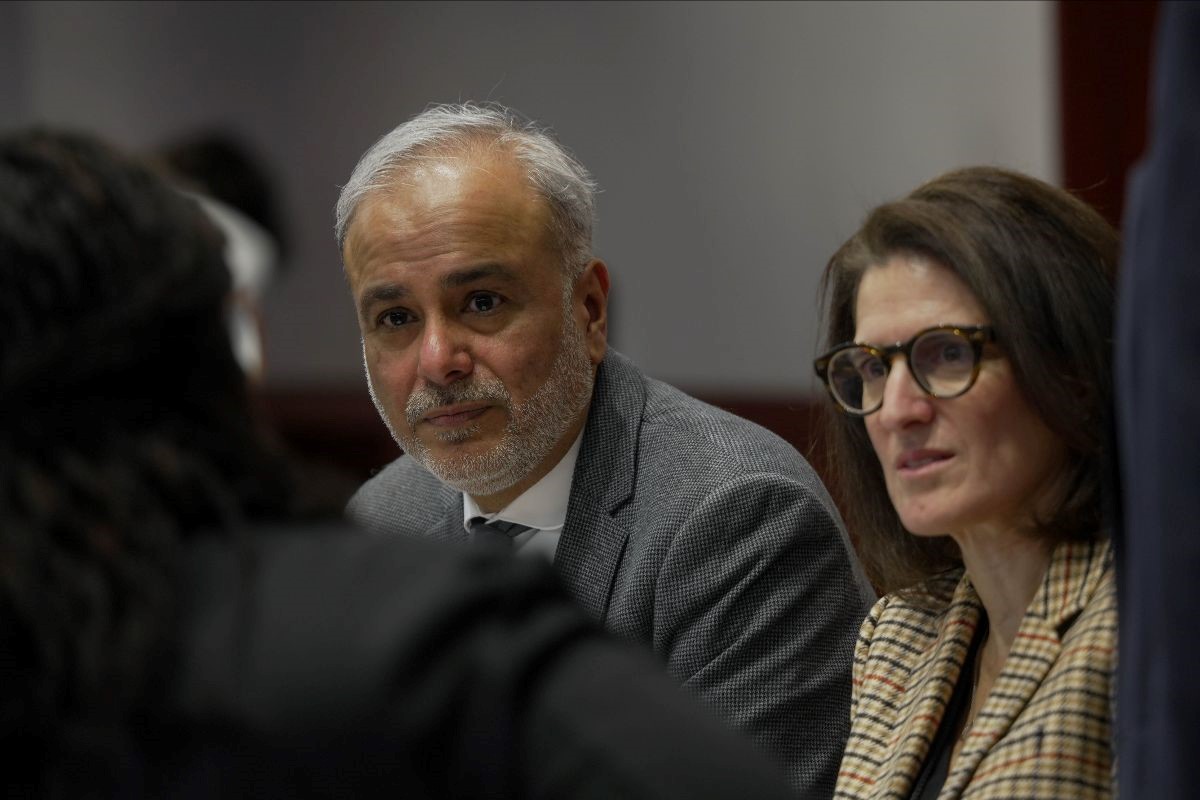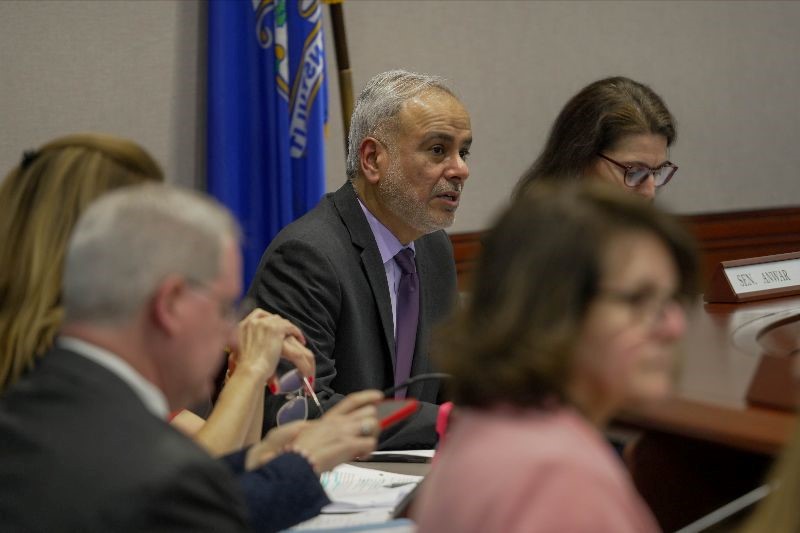BILL TRUMP-PROOFING CONNECTICUT HEALTH CARE, PROTECTING ACCESS TO CARE PASSES PUBLIC HEALTH COMMITTEE

Senator Anwar, left, and State Representative Cristin McCarthy Vahey, House Chair of the Public Health Committee, speak Wednesday with State Representative Kai Belton, House Vice Chair of the Committee
Today, the Public Health Committee, led by Senate Chair State Senator Saud Anwar (D-South Windsor), advanced Connecticut Senate Democrats’ flagship health legislation for the 2025 session that seeks to “Trump-proof” public health in the state amid rapid changes made and expected by the new federal administration. The bill seeks to retain current standards in several health efforts and ensure important care remains accessible.
Additional focal points of its language include developing a pilot program to support mental and behavioral health care and wellness in state school settings and enhancing patient transfers among hospitals to prevent discrimination and ensure patient wellness in schools.
“The last two months have many of us checking breaking news once an hour to see what’s happened and there’s no indication our new federal leaders intend to slow down,” said Sen. Anwar. “It’s with this knowledge, and the foresight provided by some of their past public comments, that Senate Bill 7 seeks to shore up the state laws and provisions in Connecticut regarding health care. Preserving access to health care means protecting reproductive rights and gender-affirming care for those who need it. It means preserving our current water standards that cut down on cavities and tooth decay. It means making sure our DPH is ready to meet future emergencies without having to wait on the federal government – or without getting directive from the federal government at all. We have a chance here to future-proof our state’s health care standards. The last two months have shown me that we should take it while we can.”
Senate Bill 7, “An Act Concerning Protections For Access To Health Care and the Equitable Delivery of Health Care Services in the State,” seeks to make a variety of changes to state statutes, primarily in the interest of preserving current public health standards. This is in response to federal policy changes enacted and proposed by President Trump and members of his cabinet, most directly Robert F. Kennedy Jr., the commissioner of the Health and Human Services Department.
The bill seeks to preserve the state’s current standard of 0.7 milligrams of fluoride per liter of water in state water supplies, which matches current federal standards. Kennedy Jr. has criticized fluoride’s safety, citing studies that tracked high fluoride exposure areas – where fluoride in water was more than double current standards – to claim it’s unhealthy.
Fluoride’s use in public water dates back decades and is used to prevent tooth decay. The United States saves $6.5 billion in dental costs annually due to fluoridation, the Centers for Disease Control and Prevention reported.
Additional changes to state public health procedures would create an advisory committee for the state Department of Public Health to review future CDC and FDA recommendations, ensuring peer review by medical experts, and the development of two accounts for the DPH. One would support urgent public health communications statewide during medical emergencies, while the other would cover unexpected shortfalls in public health funding, meant to future-proof the potential impact of funding gaps or cost-cutting.
The bill also seeks to ensure Connecticut physicians can continue to provide care to patients, including reproductive health care and gender-affirming care. It includes measures to protect the safety of individuals providing such care services in good faith, ensuring care can continue and individuals are not discriminated against by being denied care.
In supporting these efforts, the bill creates a “safe harbor” account that will collect private contributions and donations to support grants to health care providers providing reproductive or gender-affirming care, nonprofits aiding the provision of reproductive care and nonprofits supporting LGBTQ+ youth or families reimbursing costs of services provided. The fund is to ensure care for patients can continue with support despite restrictions in other states, as more than 171,000 women in 2023 traveled out of state for reproductive care and nearly half of the country restricts gender-affirming care for youth.
Senate Bill 7 further would develop a pilot program to be used in Connecticut schools in support of mental and behavioral health wellness. Students would gain access to an online tool seeking to connect them with needed health care access, increased awareness of how mental and behavioral health care works and creating social and networking opportunities to help them create real-world connections and friendships.
The bill also establishes a state equivalent of the Emergency Medical Treatment and Labor Act, a federal standard requiring hospitals to provide stabilizing care for patients experiencing emergency medical conditions. The repeal of Roe v. Wade in 2022 has created conflicts between state and federal law, including a potential shift away from supporting abortion access for patients in crisis; the changes to EMTALA would ensure state standards mandating emergency care remain in place regardless of federal changes that could jeopardize reproductive rights further.
FOR IMMEDIATE RELEASE
Contact: Joe O’Leary | Joe.OLeary@cga.ct.gov | 508-479-4969










